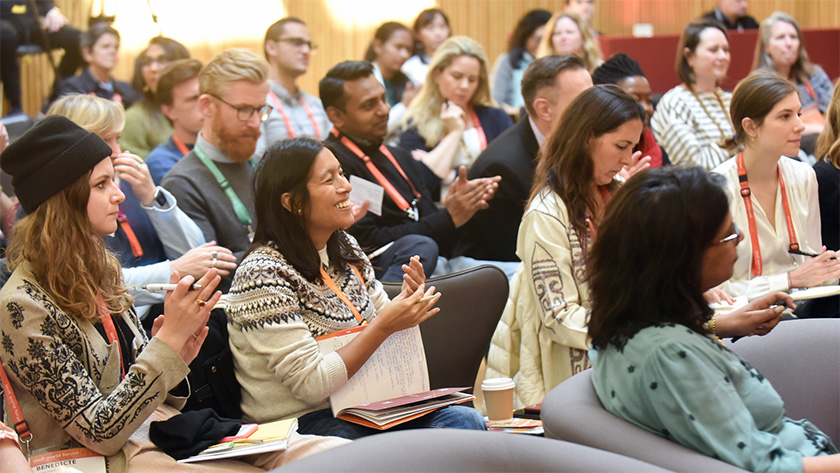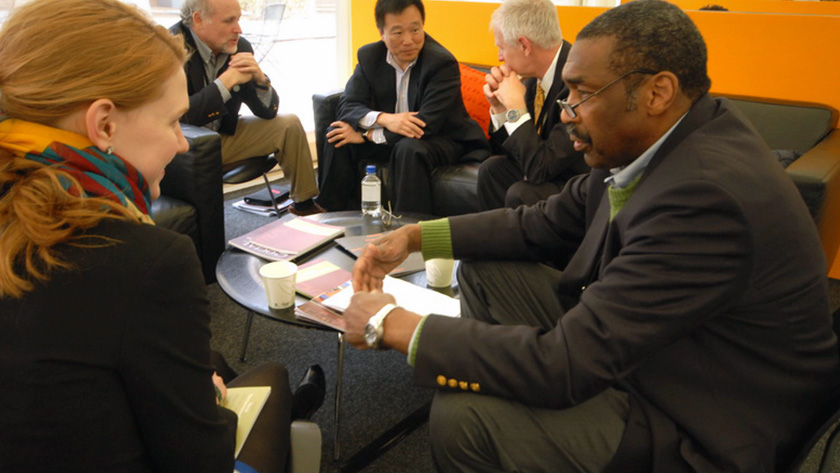At the Skoll Foundation, we’ve been on a journey over the last year to advance our understanding of the impact of our convenings, in particular the Skoll World Forum. As 1,200 people from 85 countries—each dedicated to advancing social and environmental impact globally—take a week away from their important work to join us in Oxford, we want to maximize the value of this convening. While we have many tools to gauge the quality of the Forum, we want to better understand its impact.
With the invaluable contributions of Zecheng Wang, a summer intern who joined us from Stanford as a part of the Sand Hill Foundation Fellowship, we drafted (and redrafted) a Forum theory of change; conducted background research; met with other conveners to swap tools and ideas; and asked our attendees to participate in a lengthy post-event survey. Then we asked them to fill out yet another survey several months later.

The primary reason people attend the Skoll World Forum is to connect with each other. While people also attend the Forum for personal or professional growth and actionable learning, forging new connections and sustaining existing personal relationships is—not surprisingly—the main reason to attend our convening.
Conducting a survey four months after the event was eye-opening. While we knew many of the impacts would not be immediate, we were pleasantly surprised by the ongoing specific, tangible impact the Forum has had on delegates’ work.
Capital unlocked: With a 15 percent response rate to the second survey, 28 organizations reported a minimum of $13 million USD in grants or investments received as a result of relationships developed at the Forum. In fact, more than a third of social entrepreneurs reported some positive fundraising outcome; and a third of funders reported grants or investments provided.
Partnerships formed: Beyond the exchange of capital, half of delegates reported developing a programmatic collaboration with another delegate or organization as a result of the event.
Actionable learning happens everywhere: Delegates reported that just as much learning happens through social activities and serendipitous encounters than through the formal Forum session programming. Half of delegates reported learning something that led to a specific impact on their organization—such as program design or scaling strategy.
Developing as individuals, together: The majority of delegates who responded to the second survey told us that the Forum had a lasting impact on them as individuals—it inspired them, improved their personal well-being, reconnected them to a welcoming community, and helped them develop professionally.

In both surveys, we also probed on what we might do differently in designing the Forum for 2020.
When it came to forging connections, we heard from delegates—social entrepreneurs in particular—that they would like more deliberate avenues to connect with funders, government officials, and corporate leaders. In general, respondents encouraged us to find new ways to connect relevant delegates to each other, both digitally and in-person. We also heard that the Forum can be a challenging environment for first-time delegates. Oxford can be difficult to navigate, and some delegates felt excluded from cliques of long-time attendees.
From a programming perspective, delegates are hungry for more skill-building learning opportunities, particularly in funding strategy and measurement and evaluation topics. They’d also like to see us push the envelope more, with speakers that challenge conventional wisdom—and each other. Finally, attendees told us we’re not fulfilling the great potential of the Forum: with 1,200 of the greatest thinkers and doers in social impact in the same place, we could do more to advance specific outcomes.

In 2019, 95 percent of delegates said that attending the Forum was worth the time, energy, and money they spent. That’s a high bar, but we’re going to do our best to vault over it in 2020. These are some of the changes we’re working on implementing immediately as a result of feedback:
After a year of diving into the impact of the event, we will now shift to experimentation and testing mode for 2020 to continue improve the Forum to meet our delegates’ diverse needs. What else would you like to see from us?